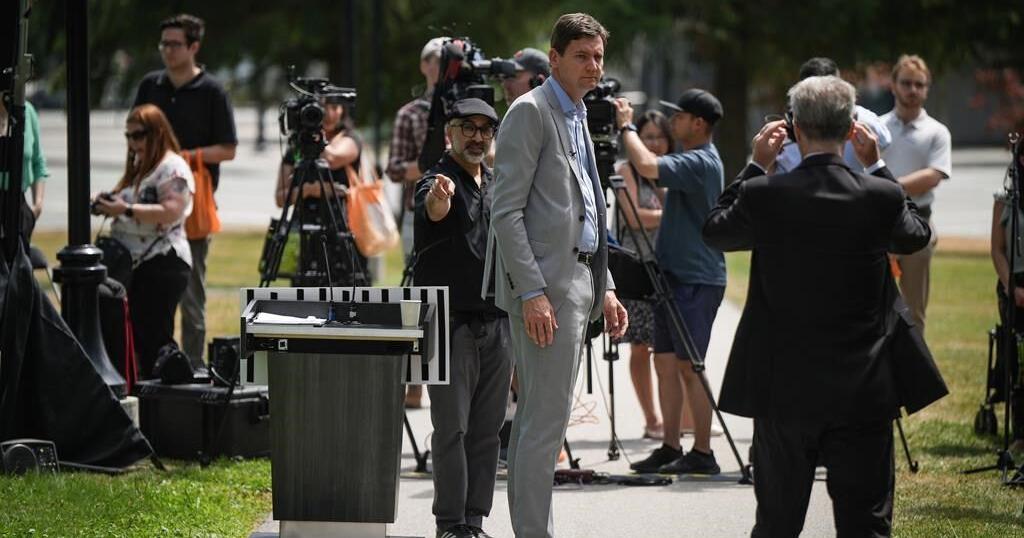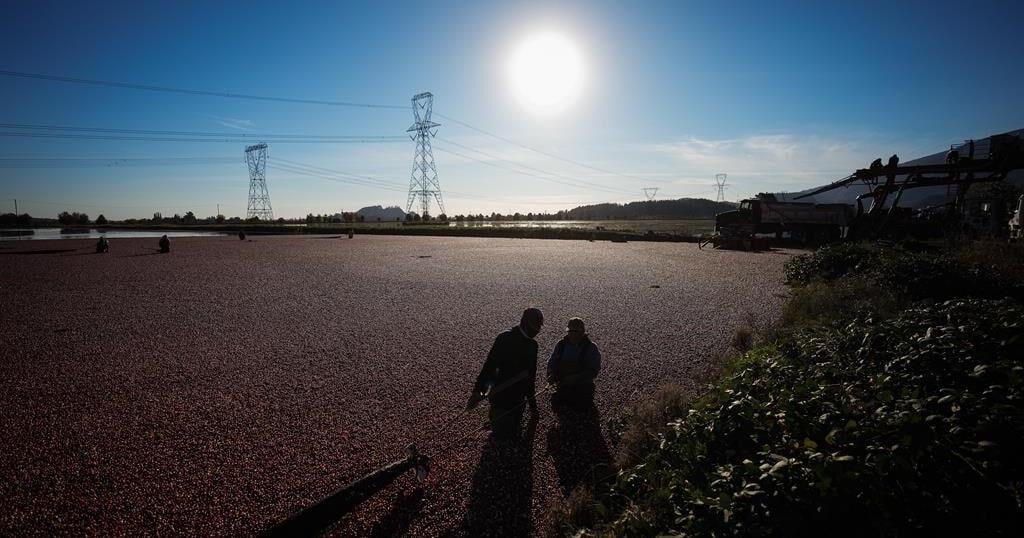VANCOUVER – A re-elected NDP government would scrap British Columbia’s long-standing carbon tax and shift the burden to “big polluters” if the federal government dropped its requirement for the law, Premier David Eby said Thursday.
At a campaign event in Vancouver, Eby said his government would end the provincial carbon tax on consumers if the federal “legal backstop” requiring the province to keep the tax in place is removed.
“Two things will happen. One is we’ll remove the carbon tax for everyday British Columbians, for the farmers, for the truckers, for the average British Columbian,” Eby said Thursday.
“The second thing is we believe that climate change is a real and present threat, unlike (B.C. Conservative Leader) John Rustad who thinks it’s a hoax. “And so we will continue to ensure … that the big polluters are paying their fair share.”
He said the federal Liberal government’s approach to the carbon tax has “badly damaged” what was a political consensus on the issue in the province, which goes to the polls on Oct. 19.
Federal Conservative Leader Pierre Poilievre has meanwhile vowed to end the carbon tax if elected.
British Columbia’s provincial carbon tax has been in place since 2008, when it became the first jurisdiction in North America to put a price on carbon emissions, but Eby said the carbon tax issue has since been “politicized,” something he called “incredibly unfortunate.”
“It’s had an impact right across the country in terms of peoples’ support for this kind of approach,” he said.
“Combine that with rising interest rates, high global inflation, and we need to make sure that we’re supporting British Columbians however we can right now.”
He said the federal government’s “unsustainable hikes” on how much people have to pay, coupled with differential treatment given to certain products and provinces had squeezed consumers at a time they need “support.”
“I believed and still believe that a price on carbon is and can be an effective tool, which is why I think that big polluters need to pay in this province,” he said.
Eby was flanked by Manitoba NDP Premier Wab Kinew at the campaign event.
Kinew said climate change needed action but the politicization of the issue had alienated blue-collar workers and a “generation of Canadians,” something he said the NDP couldn’t afford.
He said there had to be “flexibility” in the face of the affordability crisis.
“Of course, we’re going to be doing all those things to reduce emissions and to incentivize a low carbon economy, but we’ve got to keep a critical mass of Canadians on side with solving the climate crisis,” Kinew said.
B.C. Conservative leader John Rustad said Eby’s “reversal” on the tax was a “desperate attempt to salvage his sinking political ship.”
“Eby has spent years championing this disastrous tax that punishes families and businesses. Now, faced with growing opposition, he’s pretending to care. It’s nothing more than a cynical ploy,” Rustad said in a written statement sent minutes after Eby’s comments.
BC Green Party Leader Sonia Furstenau, called Eby’s pledge a “carbon tax flip-flop.”
“It is obvious that the B.C. NDP is making up climate policy on the fly. He now says big emitters should pay for climate change — but his government is giving billions in subsidies to the fossil fuel industry to increase fracking,” she said in a written statement.
“B.C. deserves a clear, coherent plan for climate change and the clean economy, not confusing contradictions.”
This report by The Canadian Press was first published Sept. 12, 2024.

_corrected.png)






















